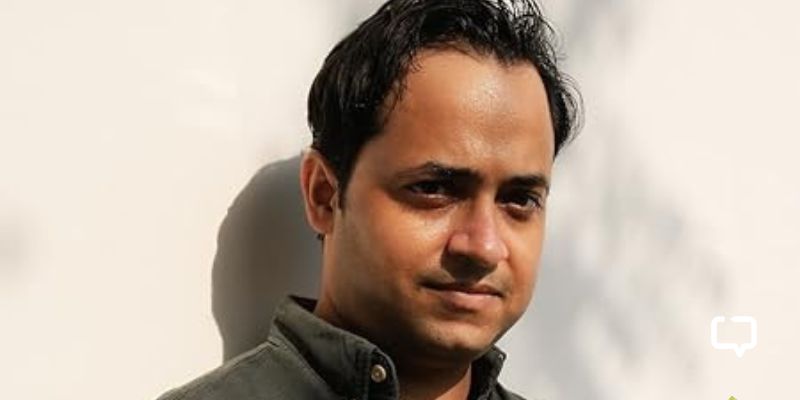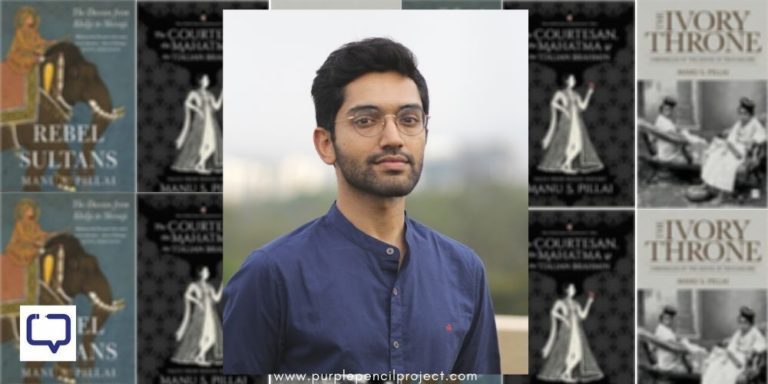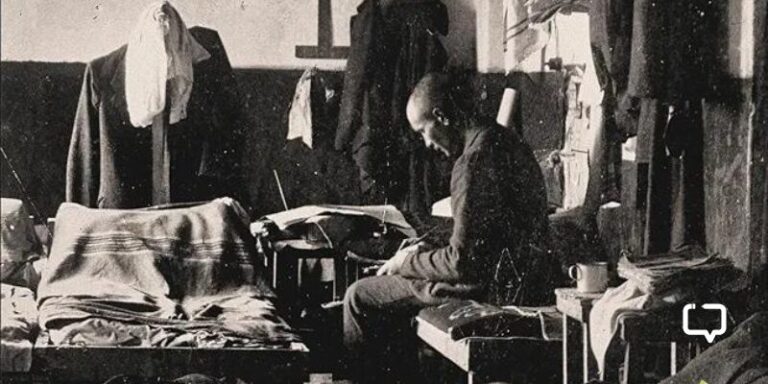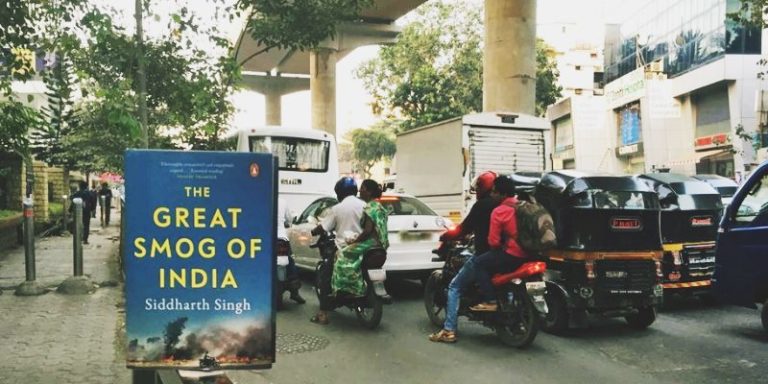Team P3 interacted with Abhishek Choudhary, author of VAJPAYEE: The Ascent of the Hindu Right, 1924–1977 (Picador India, 2023).
Abhishek Choudhary studied economics in Delhi and Chennai and has worked since 2010 in development (Pratham, IGC-Bihar) and journalism (Governance Now, Hoot, Newslaundry). His writing has appeared in a range of publications, including Anandabazar Patrika, Caravan, Deccan Herald, EPW, Himal Southasian, HuffPost India, and Indian Express. He was awarded the New India Foundation fellowship in 2017 to research Vajpayee’s life. During the winter of 2021-22, he was a scholar-in-residence at the International Centre Goa.
His book Vajpayee: The Ascent of the Hindu Right, 1924-1977 (Picador India, 2023) was also the winner of the 2023 Tata Literature Live! First Book Award.
Prakruti Maniar and Amritesh Mukherjee from Team P3 interacted with Abhishek Choudhary at the Jaipur Literature Festival held early this year.
Amritesh Mukherjee: Impartial political and historical biographies are essential for more nuance and context in a public discourse. How does your book position itself in such a discourse?
Abhishek Choudhary: I think documentation of the past is vital for the future. A civilization that cannot document its past properly can never look into the future confidently. That’s my basic hunch on it.

Prakruti Maniar: How do you maintain impartiality in your writing and research?
Abhishek Choudhary: Honestly, the idea of objectivity is boring. So, what I do is look at all sides of the problem. Of course, all of us have inherent biases. There’s no way of not getting away with it. But we should try to understand other people’s points of view, which is completely lacking in our public culture. The left wing has no interest in reading what the right wing’s pet obsessions are. People who support the right have very little interest in the left.
For historians and biographers, you must see all sides of a problem, then make up your mind, and even then, there will be bias. But that’s okay. That’s perfectly okay. That will be an informed bias, which we should aim for.
Amritesh Mukherjee: Vajpayee has recently become a controversial or majoritarian public figure, especially since 2014. How do you interpret the gaps and discrepancies in how the two sides of the political spectrum view him?
Abhishek Choudhary: Vajpayee is one of the few people in the country who has been respected by both sides. Part of the reason is that Vajpayee’s personality often had a deliberate ambiguity. That is one explanation.
But there was also something about him in the times he lived. He never had a majority government. He was not the best poet, but he had poetic sensibilities. He liked being around all kinds of people.
He became a parliamentarian when his party had only four seats. So, he was more used to interacting with people who differed from him. He travelled abroad frequently as a young man. Of course, he also fell back on the Sangh Parivar in challenging times because he thought there was nowhere else to go. But in private, he could be very different because of his exposure as a young man. When he went to the U.S., he was sent by Nehru. He had those cross-party connections throughout his life. When he was in power, he was kind to his political opponents. That’s a culture that we have almost entirely lost in such a short time.
Amritesh Mukherjee: Does your background in economics impact your writing or research process, and if yes, how?
Abhishek Choudhary: Unfortunately not. I’m a failed economist, or if I may put it a little more respectfully, I’m a lapsed economist. It helps in a basic way, not in a way that I can interpret the economics and politics of 30 years because I have that background. The idea for this book came because of basic numbers: Jan Sangh had gone from four seats in 1967 to 90 in ’77.
At the peak of the Janata Party, Jan Sangh had more than a hundred seats in the National Parliament and 400 MLAs and MLCs. That’s a huge party. And my hunch was that, okay, it was such a huge party, there must be a big story to it. A story that I did not know. That is why I began.
Prakruti Maniar: It was a journalistic hunch resulting from instinctive curiosity as to why these numbers.
Abhishek Choudhary: Right. Others did not pay much attention to numbers at the time. People still churn cliches that Jan Sangh did very poorly in ’84. Then, they rode on Ayodhya to power. But there is an older story that was just as important, and to understand the 90s, you need to understand the 40s and 50s.
Prakruti Maniar: And to understand 2024, we need to understand the 90s. You mentioned Vajpayee’s ability to cross the central, left, and right and speak to people from both sides with nuance. Do you hope that politicians today learn something from that school of politics, and has that been lost in India today?
Abhishek Choudhary: Yes. Unfortunately, that has been lost. Of course, they should. But every time a party has a majority, these tendencies come up in India. Except in Nehru’s case because Nehru was too much of a self-conscious Democrat, very unique for his time, across the world. He was the only powerful politician in third-world countries who did not become a dictator. One of the very rare people. Apart from him, even at her worst, Mrs Gandhi could also be very vindictive. But perhaps these people have taken it to another level altogether. I do look forward to less polarized times.
Amritesh Mukherjee: Can you tell us something to look out for in the sequel to this book?
Abhishek Choudhary: It’s a history of the present political movement. It has all the nuance and the masala. Everything we are discussing right now, like Ayodhya, is there. All these things were on the agenda back then. So, in that sense, it’s a history of the present moment, of this very moment.
Prakruti Maniar: Since this is the election year, do you have anything to say to the voters? In May 2024, we face the decision of making a choice. Is there a way for common citizens to approach this moment in an active capacity right now, not just in retrospect or through condensed reading? What kind of information or study do people arm themselves with to say, “Okay, I’m going to be a responsible citizen of this democracy”?
Abhishek Choudhary: We are going through very tough times. Majoritarian emotions have taken over, and it is, of course, very tragic. I hope some sanity returns so that we are not blinded by casual bigotry. It’s such a big problem. I can’t give a quick answer.
It begins with pedagogy, the hatred of the other. So it’s a massive question, but it would be nice if more people were informed. Hence, they understand history more clearly, what happens when the country becomes majoritarian, and the dangers of it, and they vote accordingly.






















